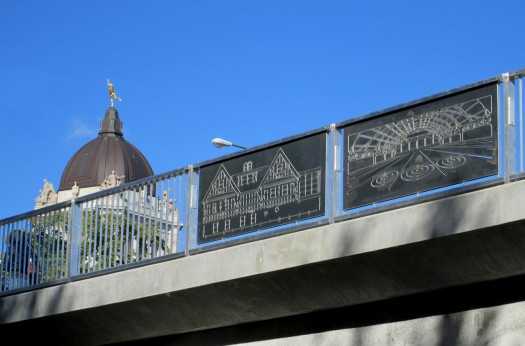To Those Proud and Exuberant Promoters of Town, City and State: I say thank you!
In this extended holiday essay, explorer / spelunker / observer John Watts delivers an everyman’s take on Chesterton’s oft-noted adage: Places don’t become loved because they are great; they become great because they are loved. Does your town invite “word-of-mouth walking?” I am always profoundly moved and impacted by those special strangers I’ve had the…
Read MoreHomelessness: Testing the boundaries of “health, safety and welfare”
Homelessness is an everyday issue that gets a little additional attention during the holidays. A recent HUD report estimated that, on a single night, 633,782 people are homeless across the United States. What surprised me and others, however, was the fact that, after New York and Los Angeles, it’s San Diego, our 8th largest city…
Read MoreWilmington, NC: Active living and running buddies
Ever have trouble going out for a run? Know how much easier that gets when your good friend hits the road with you? Partly because you’re talking, partly because you’re just happy to see each other. This week in downtown Wilmington, North Carolina, doing some rezoning work for a community just across the river, I…
Read MoreNext Urbanism Lab 03: Redevelopment as a tool for urban (re)investment
Yesterday, I had the great fortune of sitting on a panel to discuss the possibilities of Redevelopment 2.0 in California. The other panelists included CNU Board member Scott Polikov, APA President-elect Bill Anderson, affordable housing advocates, planning professionals and professors, as well as my lovely wife (discussing the California Environmental Quality Act). Sadly, I blew…
Read MoreTraditional Cities and Towns: Incubators of incompetent children
First off, before I’m assaulted by urban defenders in an all-out flame war, let me clarify that my tongue is planted firmly in cheek here. A little background: I’ve written before on the intersection between traditional / smart growth environments and child-rearing, first at the level of the neighborhood and then, later, at the level…
Read MoreWalmart and the Quest for a Better Mousetrap
“I don’t shop at Walmart.” Talk about a loaded phrase. Five simple words, but issue them collectively and you effectively open a Pandora’s Box of suggestion: Where you stand economically. Where you stand politically. How you feel about the environment. Or localism. Or capitalism. It’s like erecting a giant movie screen upon which other people…
Read MoreNext Urbanism Lab 02: Planning trends captivate, but…
In not learning from the past we are destined to repeat it. So, in this lab, I’ll examine some of the trends currently dominating planning and begin examining the quirks and pitfalls that can occur when a solution for one city is transplanted somewhere else. In my last Next Urbanism Lab post, I detailed how…
Read MoreMunicipal Placemaking Mistakes 04: No models for emulation
Emulation is more than just the highest form of flattery. It’s also a key factor in effective placemaking. Yes, in the course of a meaningful visioning process, the naming of a specific place as a model for emulation is not absolutely necessary, but its benefits are so great that failing to do so constitutes one…
Read MoreMunicipal Placemaking Mistakes 03: The importance of a meaningful vision
In our last post in this series, we covered the three steps of placemaking. The first of these steps, crafting a meaningful vision, is the most straightforward, yet it is also the most underleveraged. It is underleveraged because communities do not understand its political implications. As a result they do not adequately invest in getting…
Read More
Creative Placemaking:
From here until now
We’ve been talking for the last few weeks about how happiness and health are generated or depleted by the way our neighbourhoods, towns, cities, and rural landscapes are developed – here, here, and here. We’ve been discussing these ideas in national terms, looking at indices and trends. During this study, I couldn’t help but reflect…
Read More

